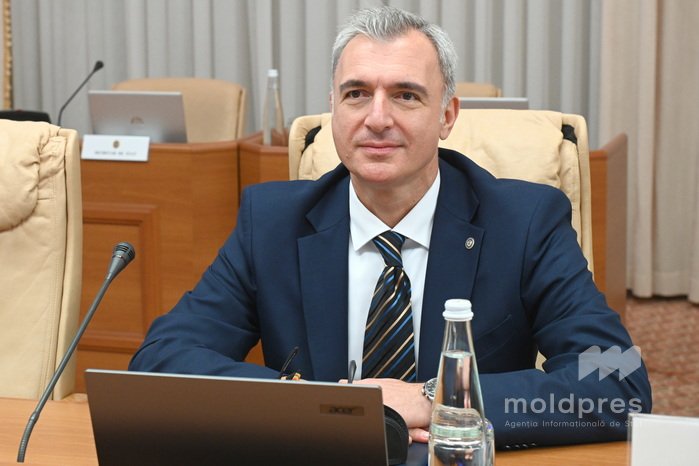
Deputy PM says Moldova becomes cyber, security shield in Eastern Europe
Moldova has withstood a massive hybrid attack and has become a cyber and security shield in Eastern Europe. Deputy Prime Minister, Minister of Economic Development and Digitalization Eugen Osmochescu made statements to this effect at the conference titled, 2025 Enlargement Report: Progress and Future Priorities of Moldova, organized in Chisinau today.
According to the official, cybercrime cost states around the world approximately 10.5 trillion dollars in 2025, and for a small or medium enterprise, this figure has reached about 200,000 dollars.
“If we talk about Moldova, and I mean here, of course, the successes we've had so far, both at the strategic level and at the level of government regulations, we've managed to withstand and become a shield, in fact, a cyber and security shield in Eastern Europe. We have become a shield not only for ourselves, but for the other EU member states as well,” said Eugen Osmochescu.
The official also referred to the MDED's priorities for the next period, particularly mentioning the goal of achieving a 75 percent rate of digitalization of public services for entrepreneurs by the end of the year, compared to the current level of 73 percent.
At the same time, the deputy PM highlighted that the authorities were working on three important deregulation packages, which are to be approved by the end of the 2025 year.
Eugen Osmochescu also emphasized the priority of switching from a consumption-based economy to one based on production, productivity and innovation.
Today, Chisinau hosts the conference titled, 2025 Enlargement Report: Progress and Future Priorities of Moldova, where the progress made by Moldova on its European path and the priorities for 2026 are analyzed, based on the conclusions and recommendations formulated by the European Commission in the 2025 Enlargement Report. The event brings together representatives of Moldova’s government, international partners, academia, the business sector and civil society.
VIDEO // Vulcanesti–Chisinau power line close to completion: 99 per cent of construction, installation works carried out
VIDEO // Radu Vrabie takes over as head of Customs Service
DOC // Order on new classification of public roads by load-bearing capacity published in Official Journal
National Bank of Moldova: annual inflation rate to continue to decrease
As little as about three per cent of Moldova's houses insured; How much insurance costs, what risks it covers
Moldova to create digital system for issuing building energy performance certificates
VIDEO // Deputy PM says Moldova shows small state can be great example of resilience, innovation
Moldovan energy minister says higher electricity prices in last October due to regional developments
PHOTO // Moldovan wines conquer Japan
Deputy PM says Moldova becomes cyber, security shield in Eastern Europe
MP says Moldova introduces more transparency, clarity in evaluation of strategic investments, in line with European Commission's recommendations
EU commissioner for enlargement meets representatives of Moldova's parliamentary factions
Political analyst says Moldova's neutrality of becomes vulnerability without European cooperation
Moldova accelerates integration into European single market: reforms, standards, economic competitiveness
First meeting of National Commission for European Integration opens new chapter in Moldova's European journey
Message of EU's Commissioner for Enlargement to opposition parties: "If we want a prosperous Moldova in EU, everyone's involvement is needed"
Moldovan foreign affairs minister says reintegration of Transnistria to be peaceful through region's economic integration into Moldova, European Union
Prime Minister at Conference Enlargement Report 2025: Progress and Future Priorities of the Republic of Moldova
VIDEO // European Commissioner for Enlargement has discussion with Moldovan parliament speaker
Moldova, Canada discuss expanding bilateral cooperation
Moldovan authorities intend to inventory of agreements on free trade, investments' protection
President appoints Alexandru Gasnaș as presidential health advisor
Moldovan women recognized internationally for role in security and equality
PHOTO GALLERY // Conference Enlargement Report 2025: Progress and Future Priorities of the Republic of Moldova
Prime Minister and European Commissioner for Enlargement discuss reforms and EU support for Moldova

